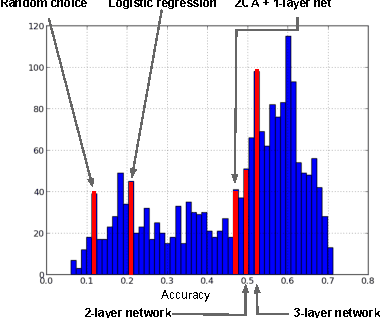Cristian Grozea
Automatic Conversion of MiniZinc Programs to QUBO
Jul 19, 2023Abstract:Obtaining Quadratic Unconstrained Binary Optimisation models for various optimisation problems, in order to solve those on physical quantum computers (such as the the DWave annealers) is nowadays a lengthy and tedious process that requires one to remodel all problem variables as binary variables and squeeze the target function and the constraints into a single quadratic polynomial into these new variables. We report here on the basis of our automatic converter from MiniZinc to QUBO, which is able to process a large set of constraint optimisation and constraint satisfaction problems and turn them into equivalent QUBOs, effectively optimising the whole process.
Optimising Rolling Stock Planning including Maintenance with Constraint Programming and Quantum Annealing
Sep 15, 2021


Abstract:We developed and compared Constraint Programming (CP) and Quantum Annealing (QA) approaches for rolling stock optimisation considering necessary maintenance tasks. To deal with such problems in CP we investigated specialised pruning rules and implemented them in a global constraint. For the QA approach, we developed quadratic unconstrained binary optimisation (QUBO) models. For testing, we use data sets based on real data from Deutsche Bahn and run the QA approach on real quantum computers from D-Wave. Classical computers are used to run the CP approach as well as tabu search for the QUBO models. We find that both approaches tend at the current development stage of the physical quantum annealers to produce comparable results, with the caveat that QUBO does not always guarantee that the maintenance constraints hold, which we fix by adjusting the QUBO model in preprocessing, based on how close the trains are to a maintenance threshold distance.
Solving the Extended Job Shop Scheduling Problem with AGVs -- Classical and Quantum Approaches
Sep 10, 2021



Abstract:The subject of Job Scheduling Optimisation (JSO) deals with the scheduling of jobs in an organization, so that the single working steps are optimally organized regarding the postulated targets. In this paper a use case is provided which deals with a sub-aspect of JSO, the Job Shop Scheduling Problem (JSSP or JSP). As many optimization problems JSSP is NP-complete, which means the complexity increases with every node in the system exponentially. The goal of the use case is to show how to create an optimized duty rooster for certain workpieces in a flexible organized machinery, combined with an Autonomous Ground Vehicle (AGV), using Constraint Programming (CP) and Quantum Computing (QC) alternatively. The results of a classical solution based on CP and on a Quantum Annealing model are presented and discussed. All presented results have been elaborated in the research project PlanQK.
Challenges in Representation Learning: A report on three machine learning contests
Jul 01, 2013

Abstract:The ICML 2013 Workshop on Challenges in Representation Learning focused on three challenges: the black box learning challenge, the facial expression recognition challenge, and the multimodal learning challenge. We describe the datasets created for these challenges and summarize the results of the competitions. We provide suggestions for organizers of future challenges and some comments on what kind of knowledge can be gained from machine learning competitions.
 Add to Chrome
Add to Chrome Add to Firefox
Add to Firefox Add to Edge
Add to Edge